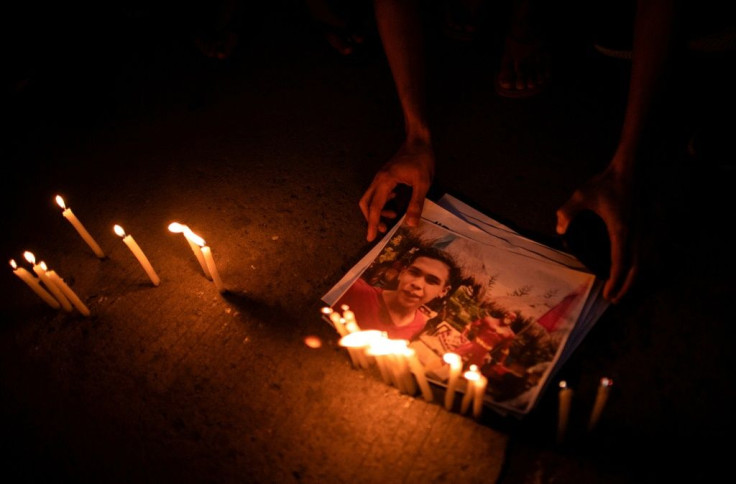Duterte To Face Multiple Criminal Charges By End Of Term As Lawyers’ Group Seeks Justice

The Philippine constitution is like the United States' in many ways including the “policy” that a sitting president is immune to prosecution. The immunity ends after a Philippine president steps down at the end of his or her six-year term.
A presidential term in the U.S. is four years so President Donald J. Trump may face some legal difficulties when he leaves office after 2020 or 2024 or by his resignation or impeachment. Any criminal charges he may face pale in comparison to what Philippine President Rodrigo Duterte might be charged with when his term ends in 2022.
On Monday, the National Union of Peoples’ Lawyers (NUPL) announced they were planning to file a “slew of charges” against Duterte. The charges include willful killing, persecution and other inhumane acts under the Philippine Act on Crimes Against International Humanitarian Law, Genocide and Other Crimes Against Humanity, as well as violations of the Revised Penal Code for grave threats and Civil Code for damages for violation of constitutional rights.
NUPL president Edre Olalia denied revenge was a factor in bringing the charges and argued that seeking justice to the thousands of victims of human rights violations under Duterte’s administration was the motivation.
In an interview with the Inquirer, Olalia said, “It’s not vindictive. Whoever is accountable needs to be held [into account]. Until those who are accountable [and] do not change and are not penalized, we will run after them.”
He added that the charges would serve as a reminder to present and future officials who choose to step down to avoid any consequences of their actions “would not be retiring in comfort.”
The last statement was in reference to the recent resignation of the chief of police who stepped down just a few weeks shy of his retirement rather than answer to allegations of wrongdoing during a 2013 drug bust.
Presidential spokesperson Salvador Panelo was quick to dismiss the NUPL threats and said, “It’s a free country. Everyone is entitled to file any case against whom they think has violated the law. And let the courts decide the validity of such complaints.” He also said the main concern of Duterte is about improving the lives of Filipinos.
Other officials who might be charged include National Security Adviser Hermogenes Esperson Jr., Defense Secretary Delfin Lorenzana, Interior Secretary Eduardo Año, as well as the former, present and future chiefs of the Philippine National Police and the Armed Forces of the Philippines.
The NUPL will be fighting an uphill battle against steep odds of any prosecutions, but Olalia remains optimistic that the rule of law will eventually prevail.
© Copyright IBTimes 2025. All rights reserved.





















